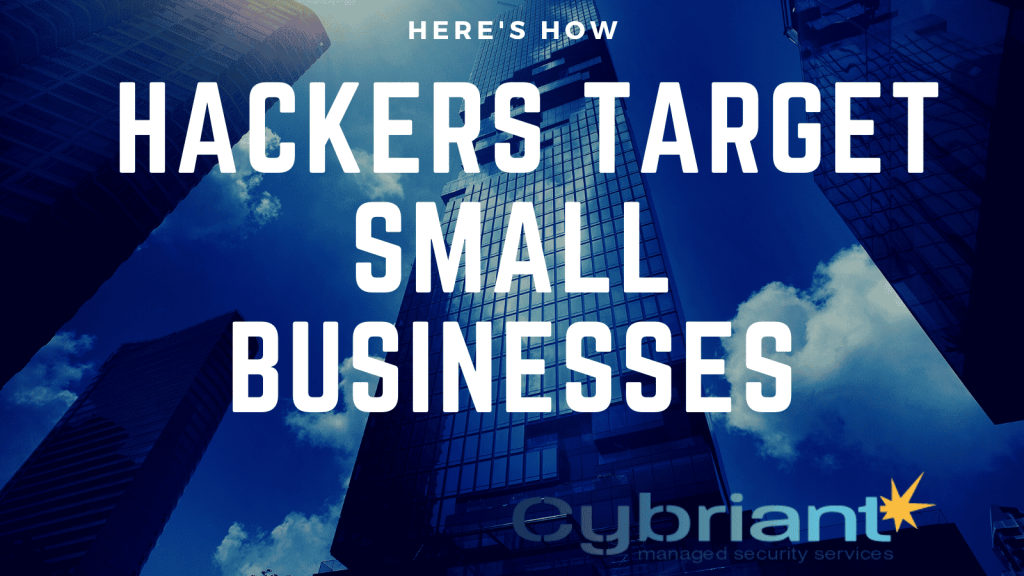It’s important to understand how hackers target small businesses and that smaller companies are a favorite object of hackers. Why? Because small businesses often lack the security measures and financial resources in place that larger businesses have.
Hackers know that small businesses are less likely to have sophisticated security systems, and they take advantage of this fact. Here’s how hackers target small businesses.
What are the most common ways hackers target small businesses?
As small businesses become increasingly reliant on digital technologies and remote working, we are also becoming more vulnerable to cyber-attacks. Hackers target small businesses by using a variety of techniques to gain access to our personal information, including phishing, malware, and social engineering. While it is important to be aware of these threats, there are also steps small business owners can take to protect sensitive information.
Weak Credentials
One of the most effective ways to prevent a data breach is to use strong passwords. A strong password should be at least eight characters long and include a mix of letters, numbers, and symbols. We should also avoid using the same password for multiple accounts, and we should never share our passwords with anyone else.
Vulnerabilities
In addition, it is important to keep your software up to date, as hackers can exploit vulnerabilities that have not yet been patched. By taking these precautions, we can help to insulate ourselves from the growing threat of cyber attacks.
Phishing
Phishing is a type of cyberattack that involves hackers using fake emails or websites to trick people into revealing personal information, such as passwords or credit card numbers. Hackers often masquerade as a trusted source, such as a bank or government agency, to gain the victim’s trust. Spear phishing attempts to scam a very targeted group of people such as smaller businesses.
Malware
Malware is a type of software that is designed to damage or disable computers. Hackers often use malware to gain access to a victim’s personal information, such as passwords or financial data. Malware can be spread through email attachments or websites.
Social Engineering
Social engineering is a type of cyber attack that involves hackers using deception to trick people into revealing personal information, such as passwords or credit card numbers. Hackers may pose as a trusted source, such as a bank or government agency, to gain the victim’s trust. They may even go so far as to create a fake website that looks identical to the real thing.
How can you protect yourself from these cyber attacks?
The best way to defend yourself from these attacks is to outsource your cybersecurity. This way, you can be sure that your sensitive data is safe and secure, and you can also be sure that you are complying with all relevant regulations.
Managed Security Service Providers (MSSPs) can also help you to respond quickly to any attacks that do occur, and they can also provide you with proactive protection against future attacks.
In addition, outsourced cybersecurity providers can help you to keep your systems up to date with the latest patches and updates. As a result, outsourcing your cybersecurity is the best way to guard yourself against data breaches.
What should you do if your business experiences a security breach?
If your business is hacked, it’s important to take immediate action to minimize the damage and prevent further attacks.
The first step is to identify what type of attack you’ve suffered and what information has been compromised. You should then contact your cybersecurity team or an external cybersecurity firm to help you contain the data breach and mitigate the risks.
Once you’ve done that, you need to take steps to ensure that your systems are secure and that your data is protected. This may involve implementing new security measures, updating your software, educating employees, and more.
In the aftermath of a hack, it’s important to learn from your mistakes and take steps to prevent future attacks. By following these steps, you can minimize the damage from a hack and fortify your business in the future.
Related: Security Benefits of Identity and Access Management (IAM)
And finally, you should change all your passwords – both for your business accounts and for any personal accounts that may have been compromised.
Hackers are always looking for new ways to exploit businesses, so it’s important to stay one step ahead of them. By taking these steps, you can help save your business – and your customers – from the damaging effects of a hack.
How can you prevent cyber attacks from happening to your business?
The best way to prevent future attacks is to invest in managed security services. These services provide round-the-clock monitoring of your network, as well as rapid response in the event of an attack.
By proactively identifying and addressing potential threats, managed security services can help to keep your business safe. In addition, managed security services can also provide valuable insights into your network traffic and usage patterns.
This information can be used to identify potential vulnerabilities and take steps to mitigate them. By investing in managed security services, you can help to defend your business from future attacks.
Myth: Managed Security Services are Too Expensive
While it is true that smaller companies don’t have the same security budget as larger organizations, companies like Cybriant make it easier for companies with fewer financial resources to increase security and safeguard confidential information at an affordable monthly rate.
When you consider the impact of a hacker infiltrating your organization’s private data, it should be worth the small monthly fee and minimal effort to ensure you are protected.
Conclusion
Small businesses are often seen as attractive targets by hackers. With affordable security services available, there is no excuse for allowing small companies to be low-hanging as the ‘perfect target’ for hackers.
That’s why it’s so important for small business owners to take steps to shield themselves from ransomware attacks.
As a business owner, you can ensure your organization will have the same strength as larger companies and avoid security breaches.



